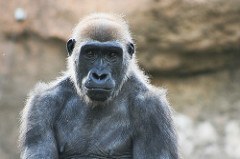
Fast Facts About Apes
It's the Great Ape-ril at the ABQ BioPark - join us for activities throughout the month. Here are some things you may not know about apes!
Humans are Great Apes
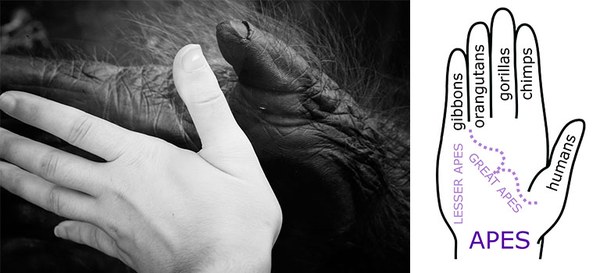
Great apes include gorillas, chimpanzees (which include bonobos), orangutans and humans. Our closest relative is the chimpanzee - we share more than 98 percent of our DNA with these great apes! The ABQ BioPark houses three species of great apes - Western lowland gorillas, Sumatran orangutans and common chimpanzees.
Chimpanzees Have a Group Hierarchy
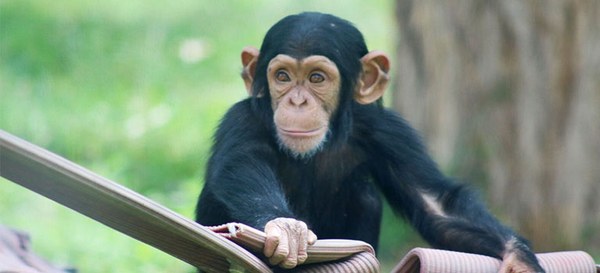
Chimpanzees live in large social groups with a defined hierarchy of power. The alpha male is the highest-ranking male that controls the group and maintains order during disputes. Females also have their own ranking order. Sometimes the dominant male is not the largest or strongest - he acquires his position instead through manipulation and political tactics like cultivating allies.
Elaine and Alf - parents of twins Rio and Desi - sit at the top of the BioPark's chimp hierarchy, and their children receive preferential treatment too. While folks may feel sad for the chimps at the bottom of the chain of command, ABQ BioPark chimpanzee keeper Greg Browder says that maintaining a healthy, stable hierarchy is very important to chimp societies.
The ABQ BioPark has common chimpanzees, which are native to the heavily forested areas of Central and West Africa.
Gorillas Are Extremely Intelligent
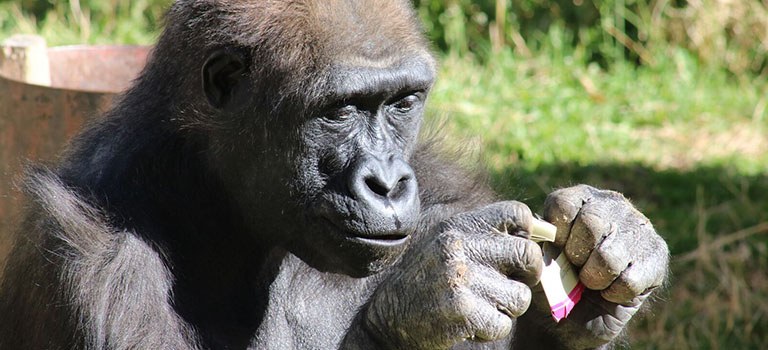
Like all great apes, gorillas are extremely intelligent. Koko, a famous gorilla living in California, can communicate with more than 1,000 hand signals in "Gorilla Sign Language," a modified version of American Sign Language. Gorillas can also use tools and have various methods of communication, including around 25 different sounds.
At the ABQ BioPark, gorilla keepers utilize this animal's extreme intelligence to work on a pro-active healthcare program. Keepers ask for behaviors like presenting a forearm for a voluntary blood draw, offering fingers for nail trims and opening their mouth for teeth brushing (all activities are done through the safety of heavy-duty mesh to ensure human and animal safety). According to primate keepers, Tusa is the valedictorian of the gorilla group - not only does she pick up on new behaviors fast, but she is even able to anticipate what keepers want before they even ask.
The ABQ BioPark has Western lowland gorillas, which are native to several countries in the Congo Basin in West-Central Africa.
Bonobos Live in Peaceful Matriarchal Societies
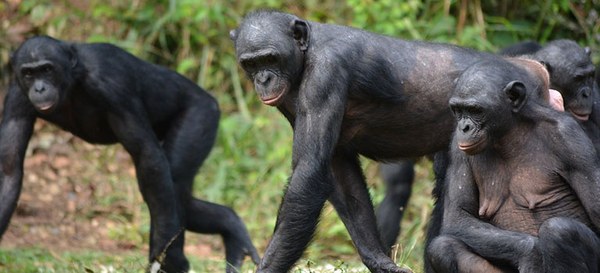
Bonobos have a reputation for peaceful and diplomatic female-led societies. These highly social great apes are matriarchal, meaning that females have a higher social status than males and social interactions are female-centered and female-dominated. The societies are also egalitarian in nature and strong bonds among females is very important.
The ABQ BioPark does not have bonobos. In the wild, they are only found in the Democratic Republic of Congo of central Africa.
You Can Make a Difference for Endangered Orangutans
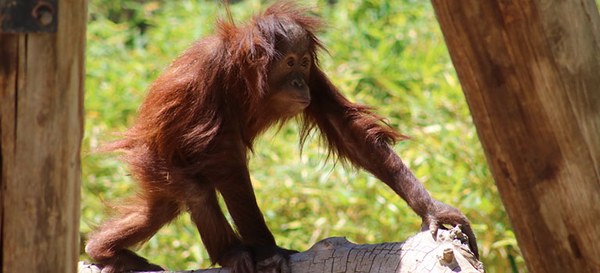
The word orangutan comes from the Malay and Indonesian words "orang," meaning "person," and "hutan," meaning "forest." Thus, orangutan translates to "person of the forest." The three orangutan species - Bornean, Sumatran and Tapanuli - can be found in the forests of Borneo and Sumatra in Indonesia.
Orangutan populations have declined by 80 percent due to habitat destruction. Millions of acres of rainforest are cut down each year to produce palm oil, the most produced edible oil in the world. But consumers can make a difference by choosing orangutan-friendly candies, cosmetics and other sustainable products with the help of our orangutan-safe product guide.
The ABQ BioPark has Sumatran orangutans, which are native to the Indonesian island of Sumatra.
Siamang Pairs Have Their Own Unique Song
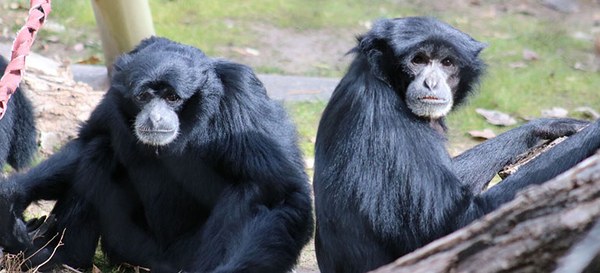
You’ll never hear a siamang call quite like that of the ABQ BioPark Zoo’s Brian and Johore.
That’s because there really is no other song like it—each monogamous siamang gibbon pair has a unique duet. This lesser ape is extremely territorial and calling helps a pair to defend its territory from other siamangs. According to ABQ BioPark primate keepers, the best time to hear Brian and Johore call is from about 9-10 a.m.
Although siamangs are not one of the great ape species, they are included in Great Ape-ril events as a lesser ape.
Siamangs are native to Sumatra Island and the Malay Peninsula in Indonesia.

